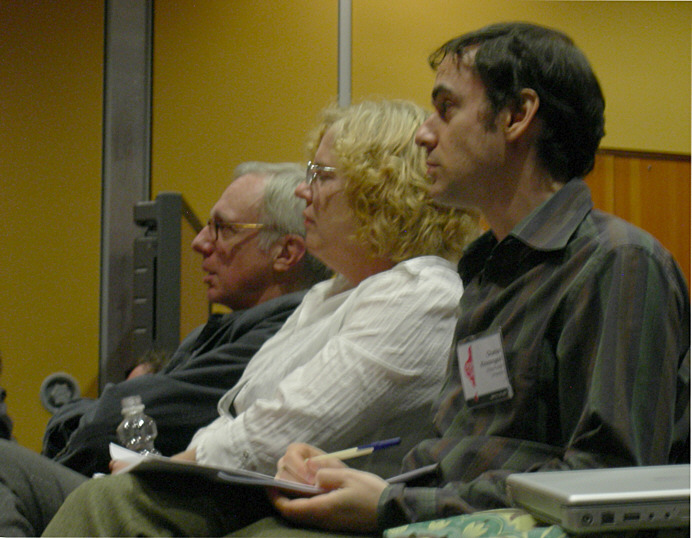|
Fritz Stege
Fritz Stege (11 April 1896 – 31 March 1967) was a German music journalist in the era of National Socialism and composer of accordion music. Life Born in , Stege attended a Realgymnasium in Berlin and was drafted at the beginning of the First World War, in the war where he lost his father who had also been drafted.Michael H. Kater: ''Gewagtes Spiel'', 1998, From 1919 to 1923 he studied musicology with Jean Paul Ertel and Johannes Wolf at the University of Berlin and was awarded a doctorate with a dissertation on Constantin Christian Dedekind. During his student days, Stege composed Schlager, which he had to dismiss as a youthful sin during the period of National Socialism when he was a victim of intrigue.Joseph Wulf: ''Music in the Third Reich'', 1983, Stege worked as a freelance music critic and music writer. He published his own "Kulturkorrespondenz für Musik" (cultural correspondence for music) and worked as an editor for various specialist journals. In the Weimar Rep ... [...More Info...] [...Related Items...] OR: [Wikipedia] [Google] [Baidu] |
Music Journalist
Music journalism (or music criticism) is media criticism and reporting about music topics, including popular music, classical music, and traditional music. Journalists began writing about music in the eighteenth century, providing commentary on what is now regarded as classical music. In the 1960s, music journalism began more prominently covering popular music like rock and pop after the breakthrough of The Beatles. With the rise of the internet in the 2000s, music criticism developed an increasingly large online presence with music bloggers, aspiring music critics, and established critics supplementing print media online. Music journalism today includes reviews of songs, albums and live concerts, profiles of recording artists, and reporting of artist news and music events. Origins in classical music criticism Music journalism has its roots in classical music criticism, which has traditionally comprised the study, discussion, evaluation, and interpretation of music that has b ... [...More Info...] [...Related Items...] OR: [Wikipedia] [Google] [Baidu] |
Fritz Jöde
Fritz Jöde (2 August 1887 − 19 October 1970) was a German music educator and one of the leading figures in the (youth music movement). Life Born in Hamburg, Jöde was the son of a master shoemaker.Fred K. Prieberg: ''Handbuch Musiker 1933–1945''. CD-Rom-Lexikon, Kiel 2004, . After his studies, Jöde first worked as a teacher at an Volksschule in Hamburg and joined the youth movement in 1916. At first he was a musical autodidact. Due to his achievements in the field of folk music, he was released from teaching duties to study musicology. In the years 1920 and 1921 Jöde studied in Leipzig, mainly with Hermann Abert. Subsequently, Jöde became a lecturer at the Royal Music Institute of Berlin in 1923. There he founded the first state youth music school in the same year. In 1926 Jöde also initiated so-called "open singing lessons". From 1930 he was entrusted with the direction of the seminar for folk and youth music at the academy, to which he was still affiliated. After ... [...More Info...] [...Related Items...] OR: [Wikipedia] [Google] [Baidu] |
Hans Mersmann
Hans Mersmann (6 August 1891 – 24 June 1971) was a German music historian, musicologist and teacher of music. Life Born in Potsdam, Mersmann studies in Munich and Berlin. He received his doctorate in 1914. One year later he was commissioned by the Prussian Folk Song Commission to create a folk song archive. From 1924 to 1933, he was editor-in-chief of the magazine "Melos". In 1926, he became a professor at the Technical University of Berlin. In 1933, after the Nazi takeover, he was dismissed from the university on the grounds that he had worked in the field of Neue Musik. He was then obliged to give private music lessons. In 1935, he was still stigmatized as " Bolshevik of Music" by the Militant League for German Culture. From 1947 to 1957, he taught at the Hochschule für Musik und Tanz Köln. Mersmann died in Cologne aged 79. Works * ''Kulturgeschichte der Musik in Einzeldarstellungen''. Berlin 1921–25 * ''Angewandte Musikästhetik''. Berlin 1926 * ''Die Tonsprache der ... [...More Info...] [...Related Items...] OR: [Wikipedia] [Google] [Baidu] |
Editor-in-chief
An editor-in-chief (EIC), also known as lead editor or chief editor, is a publication's editorial leader who has final responsibility for its operations and policies. The highest-ranking editor of a publication may also be titled editor, managing editor, or executive editor, but where these titles are held while someone else is editor-in-chief, the editor-in-chief outranks the others. Description The editor-in-chief heads all departments of the organization and is held accountable for delegating tasks to staff members and managing them. The term is often used at newspapers, magazines, yearbooks, and television news programs. The editor-in-chief is commonly the link between the publisher or proprietor and the editorial staff. The term is also applied to academic journals, where the editor-in-chief gives the ultimate decision whether a submitted manuscript will be published. This decision is made by the editor-in-chief after seeking input from reviewers selected on the basis o ... [...More Info...] [...Related Items...] OR: [Wikipedia] [Google] [Baidu] |
Neue Zeitschrift Für Musik
'Die'' (; en, " heNew Journal of Music") is a music magazine, co-founded in Leipzig by Robert Schumann, his teacher and future father-in law Friedrich Wieck, and his close friend Ludwig Schuncke. Its first issue appeared on 3 April 1834. History Although the first editor was Julius Knorr, most of the work on the early issues of the ''Neue Zeitschrift'' (NZM) was done by Schumann; in 1835, when a new publisher was found, Schumann's name appeared as editor. In his reviews, he praised those of the new generation of musicians who deserved acclaim, including Frédéric Chopin and Hector Berlioz. Schuncke wrote some articles under the byline "Jonathan" but died at the age of 23 in December 1834. In June 1843, Schumann's other commitments made him give up editorship of the magazine, and in 1844 Franz Brendel became owner and editor. Under his tenure, the most notable piece was Richard Wagner's anti-Jewish article "Das Judenthum in der Musik", published under the pseudonym K. Freigeda ... [...More Info...] [...Related Items...] OR: [Wikipedia] [Google] [Baidu] |
Das Schwarze Korps
''Das Schwarze Korps'' (; German for "The Black Corps") was the official newspaper of the ''Schutzstaffel'' (SS). This newspaper was published on Wednesdays and distributed free of charge. All SS members were encouraged to read it. The chief editor was SS leader Gunter d'Alquen; the publisher was Max Amann of the Franz-Eher-Verlag publishing company. The paper was hostile to many groups, with frequent articles condemning the Catholic Church, Jews, Communism, Freemasonry, and others. The newspaper was published in close co-operation with the ''Sicherheitsdienst'' (SD; Security Service), which had substantial editorial control. The first edition appeared on 6 March 1935. In November of the same year, publication reached 200,000 and by 1944 had increased to 750,000. The newspaper saw some distribution outside Germany. History and contents Formed in 1935, ''Das Schwarze Korps'' was the official newspaper of the ''Schutzstaffel'' (SS). The newspaper was created to be a defender of N ... [...More Info...] [...Related Items...] OR: [Wikipedia] [Google] [Baidu] |
Völkischer Beobachter
The ''Völkischer Beobachter'' (; "'' Völkisch'' Observer") was the newspaper of the Nazi Party (NSDAP) from 25 December 1920. It first appeared weekly, then daily from 8 February 1923. For twenty-four years it formed part of the official public face of the Nazi Party until its last edition at the end of April 1945. The paper was banned and ceased publication between November 1923, after Adolf Hitler's arrest for leading the unsuccessful Beer Hall Putsch in Munich, and February 1925, the approximate date of the relaunching of the Party. History The "fighting paper of the National Socialist movement of Greater Germany", or ''"Kampfblatt der nationalsozialistischen Bewegung Großdeutschlands"'' as it called itself, had its origin as the '' Münchener Beobachter'', or "Munich Observer", an anti-Semitic semi-weekly scandal-oriented paper which in 1918 was acquired by the Thule Society and, in August 1919, was renamed ''Völkischer Beobachter'' (see '' Völkisch'' and ''Völkisch ... [...More Info...] [...Related Items...] OR: [Wikipedia] [Google] [Baidu] |
UFA GmbH
UFA GmbH, shortened to UFA (), is a film and television production company that unites all production activities of the media conglomerate Bertelsmann in Germany. Its name derives from Universum-Film Aktiengesellschaft (normally abbreviated as ''UFA''), a major German film company headquartered in Babelsberg, producing and distributing motion pictures from 1917 until the end of the Nazi era. The name UFA was revived by Bertelsmann for an otherwise unrelated film and television outfit, UFA GmbH. The original UFA was established as Universum-Film Aktiengesellschaft on December 18, 1917, as a direct response to foreign competition in film and propaganda. UFA was founded by a consortium headed by Emil Georg von Stauß, a former Deutsche Bank board member. In March 1927, Alfred Hugenberg, an influential German media entrepreneur and later Minister of the Economy, Agriculture and Nutrition in Hitler's cabinet, purchased UFA and transferred ownership of it to the Nazi Party in 1 ... [...More Info...] [...Related Items...] OR: [Wikipedia] [Google] [Baidu] |
Tobis-Tonbild-Syndikat
Tobis Film was a German film production and film distribution company. Founded in the late 1920s as a merger of several companies involved in the switch from silent to sound films, the organisation emerged as a leading German sound studio. Tobis used the Tri-Ergon sound-on-film system under the Tobis-Klang trade name. The Ufa production company had separate rights to the Tobis system, which it used under the trade name of Ufa-Klang. Some Tobis films were released in Germany by the subsidiary Europa Film. Its principal production studios were the Johannisthal Studios in Berlin. During the Nazi era, Tobis was one of the four major film companies along with Terra Film, Bavaria Film and UFA. In 1942 all these companies were merged into a single state-controlled industry bringing an end to Tobis' independent existence, though films continued to be released under the Tobis banner. International operations From 1933 until 1938, Tobis controlled the dominant Austrian producer Sascha ... [...More Info...] [...Related Items...] OR: [Wikipedia] [Google] [Baidu] |
Munzinger-Archiv
Munzinger-Archiv is an encyclopedia created by Ludwig Munzinger in 1913. Ludwig Munzinger Jr. took over Munzinger-Archiv in 1957. References 1913 establishments in Germany German online encyclopedias German-language encyclopedias German biographical dictionaries {{Encyclopedia-stub ... [...More Info...] [...Related Items...] OR: [Wikipedia] [Google] [Baidu] |
Reichs-Rundfunk-Gesellschaft
The Reichs-Rundfunk-Gesellschaft (RRG; ''Reich Broadcasting Corporation'') was a national network of German regional public radio and television broadcasting companies active from 1925 until 1945. RRG's broadcasts were receivable in all parts of Germany and were used extensively for Nazi propaganda after 1933. Historical recordings of RRG broadcasts are today held by the German Broadcasting Archive. History The company was established in Berlin on 15 May 1925 with a start capital of 100,000 Reichsmark as an umbrella organisation by nine regional broadcasters – that is to say, all of the German radio stations other than the Deutsche Stunde in Bayern – serving the various states of the Weimar Republic. From 1926, a majority share was held by the state-owned Deutsche Reichspost authority, represented by RF engineer and Reichspostministerium official Hans Bredow as chairman in the rank of a ''Reichs-Rundfunk-Kommissar''. The logo of the RRG was designed by German graphic d ... [...More Info...] [...Related Items...] OR: [Wikipedia] [Google] [Baidu] |




